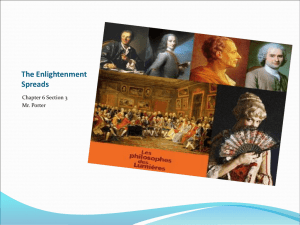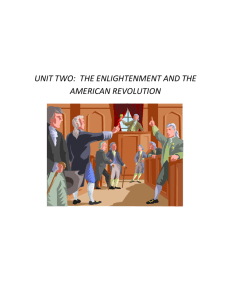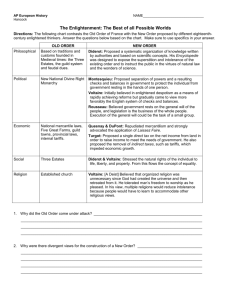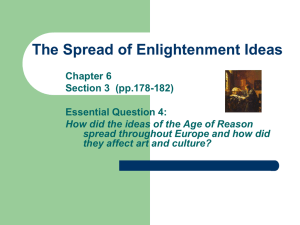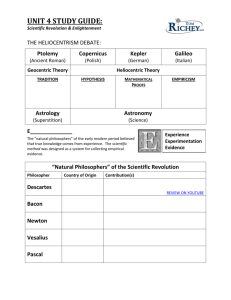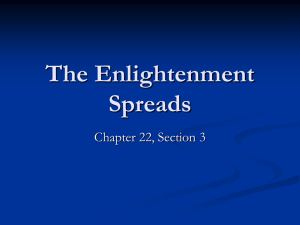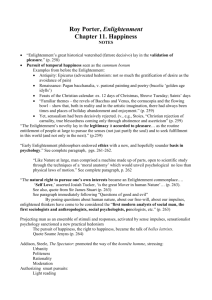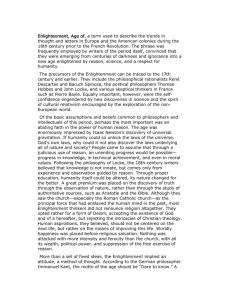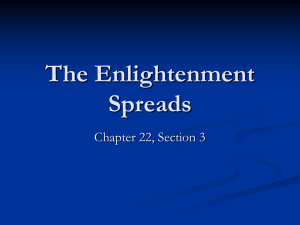World History Chapter 22C Power Point
advertisement
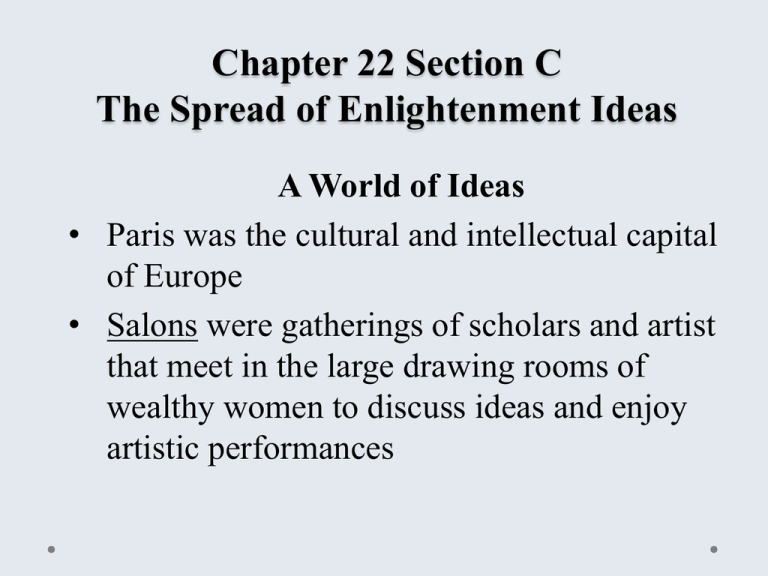
Chapter 22 Section C The Spread of Enlightenment Ideas A World of Ideas • Paris was the cultural and intellectual capital of Europe • Salons were gatherings of scholars and artist that meet in the large drawing rooms of wealthy women to discuss ideas and enjoy artistic performances The Spread of Enlightenment Ideas Diderot’s Encyclopedia • Denis Diderot – Developed the concept of the encyclopedia • Salons and the Encyclopedia helped to spread Enlightenment ideas to educate people all over Europe Denis Diderot The Spread of Enlightenment Ideas • • • • • Art & Literature in the Age of Reason 1600s and early 1700s had been dominated by the style called Baroque (a grand, ornate style). Composers of the Baroque style were Johann Sebastian Bach and George Fredrick Handel A new style began to develop that reflected the new emphasis on order and balance This new style of the late 1700s was called Neoclassical (“New Classical”). In music the style is called Classical. Classical composers include: Hayden, Mozart and Beethoven Composers The Spread of Enlightenment Ideas • • • • • Popularity of the Novel Novels – Lengthy works of prose fiction Popular with the middle class audiences Samuel Richardson – wrote Pamela is considered the first true English novel Henry Fielding wrote Tom Jones Daniel Defoe wrote Robinson Crusoe Daniel Defoe The Spread of Enlightenment Ideas Enlightenment Monarchs • Philosophes tried to get monarchs to rule justly • Enlightened despots were motivated by: 1. Wanted to make their countries stronger 2. Wanted to make their own rule more effective • Foremost of Europe’s enlightened despots were Fredrick II of Prussia, the Holy Roman Emperor Joseph II of Austria and Catherine the Great of Russia Enlightened Despots The Spread of Enlightenment Ideas • Frederick II’s most important contribution was his attitude toward being king. His goal was to serve and strengthen his country. • Joseph II – He was the most radical reformer of all the enlightenment monarchs. He abolished serfdom and ordered that peasants be paid for their labor in cash. • Catherine the Great – She was the most admired ruler by the philosophes. She made recommendations for change but none were carried out. TA22D Read Pages 640-645 Copy and Define Terms on Page 645 Copy and Answer Questions 17 and 18 on Page 646
